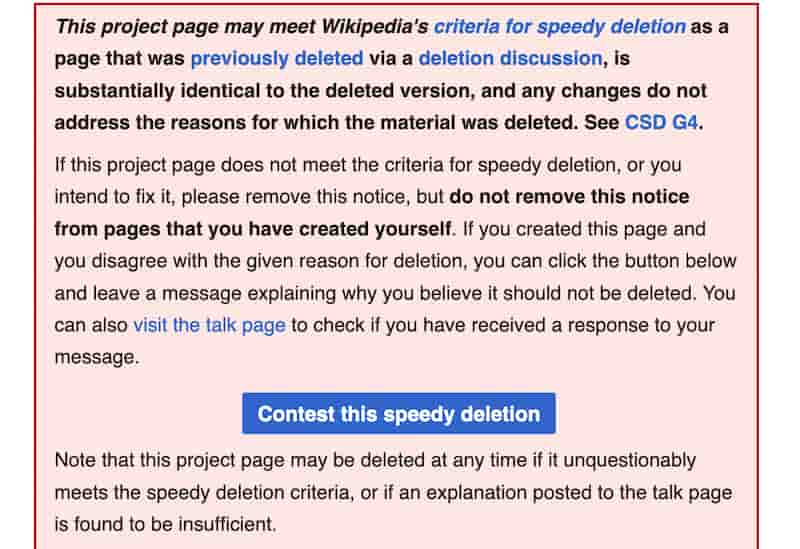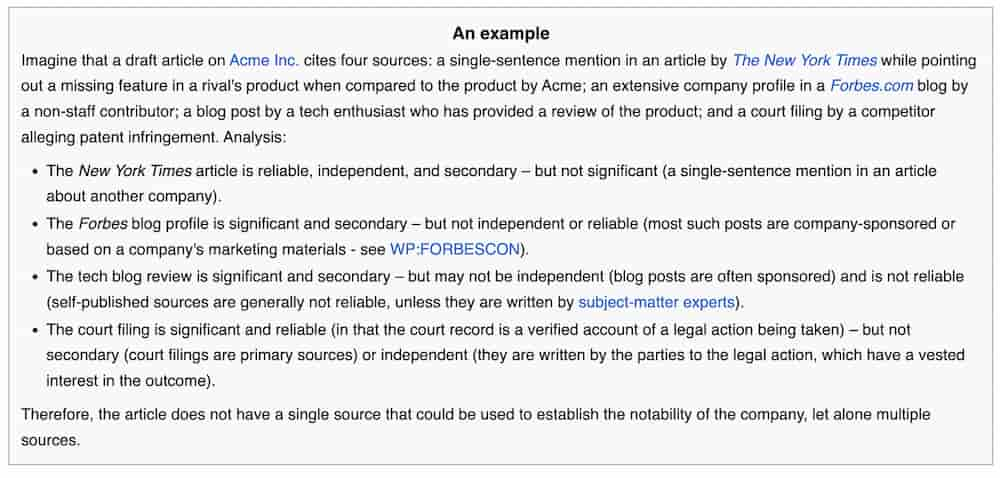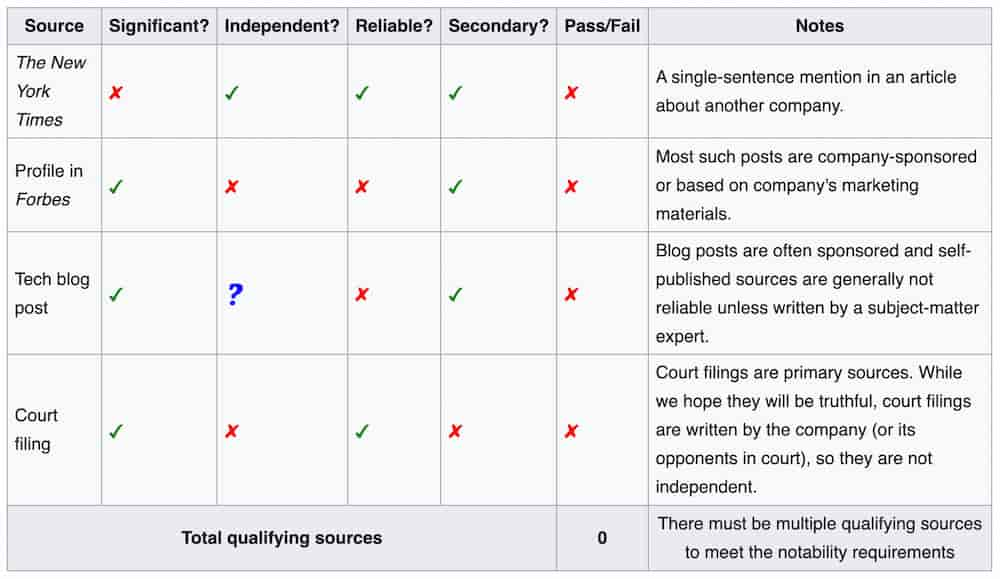How to Contest Wikipedia Article Deletion Like a Pro

A sudden notification from Wikipedia will inform you that your Wikipedia article or your brand’s Wikipedia page faces a deletion nomination. Your notification arrives unexpectedly with the message that Wikipedia has identified your article for potential deletion. Your article seems to comply with all Wikipedia rules but you still cannot understand the reason for deletion.
The deletion rules of Wikipedia create confusion because their enforcement appears both inflexible and difficult to predict. The experience of attending social events without understanding the basic rules is similar. Wikipedia preserves its credibility through these policies, which prevent biased and promotional content and create a clear organizational structure. Wikipedia attracts millions of daily users readers, resulting in strict quality control measures. New editors experience a challenging process to learn about Wikipedia standards.
This article explains Wikipedia deletion rules through easy-to-understand definitions and describes their functions and correct handling methods. Those who understand Wikipedia deletion procedures can effectively handle their flagged content and dispute removals while establishing preventive measures which leads to improved success rates.
Key Takeaways
- The process of defending a Wikipedia article from deletion requires more than frantic efforts. Users should employ the platform’s existing guidelines and methods to build effective arguments for proving their content belongs.
- A well-built argument requires solid evidence presentation. Your duty involves finding dependable third-party sources which validate your article’s importance while fixing all mentioned policy infractions and guaranteeing neutral and precise information.
- The Talk page should be treated as an open forum instead of an arena for conflict. Through proactive editor discussions you can transform critics into potential collaborators. The outcome of AfD discussions and WikiProject inquiries becomes more favorable when editors demonstrate proper respect during their debates.
- A speedy deletion can be temporarily avoided with the {{hangon}} template yet the evidence you present will have more impact on decision-makers than any emotional appeals. Your article’s alignment with Wikipedia policies receives greater importance from decision-makers than any emotional appeals.
- When participating in AfD debates it seems like you are facing an intimidating audience but these discussions give editors a chance to make their case by directly connecting their arguments to Wikipedia policies. Show respect towards opposing positions in your responses because prepared responses to counterarguments will boost your argument.
- The victory does not mark the final step. Use this experience as motivation to further improve the article. Your article will become invulnerable to future issues through the implementation of improved sourcing alongside enhanced readability and accuracy.
- Prevention beats reaction every time. Regular monitoring of your content combined with proactive updates will shield your material from potential deletion threats.
The process serves dual purposes because it enables you to learn about Wikipedia’s system which will help you create better contributions in the future. Moving forward let us examine the specific actions you can begin implementing right away.
Reviewing the Deletion Notice
When you get a deletion notice carefully read it to understand the exact reasons editors marked your article for deletion. Think of it as feedback rather than punishment.

The editor uses abbreviations such as “G11” or “A7” to provide reasons for deletion where G11 stands for promotional language. Check your article to see if it maintains objectivity or contains any sneaky promotional content.
The majority of deletion notifications contain direct links that lead to Wikipedia policy documentation pages. Following these links will show you the specific changes needed for your article to survive. The standardized template that editors use for time-saving purposes should not discourage you from the notice’s impersonal tone.
Additionally, look beyond the notice itself. Check the Talk page discussions along with edit summaries to gain more information about the deletion process. Your response will gain more power by showing that you have read all the comments when you include them in your answer.
Pro tip: Editors love seeing concrete evidence of improvement rather than vague promises.
Gathering Evidence
A successful deletion contest requires evidence that demonstrates your case. Wikipedia accepts validity evidence from independent sources which include prominent media outlets alongside respected journals and trusted industry reports. Your evidence serves to directly strengthen the case for article preservation.
Examine a case where your biotech startup article faces deletion risk because major media outlets lack coverage. To strengthen your article about a biotech startup, use the profiles or features and full-length stories available in Business Insider and TechCrunch. A biography article needs to focus on reputable media profiles together with major news outlets and verifiable industry recognition.
Here’s an example from Wikipedia:

You should strategically document every source while providing a brief assessment of its reliability and relevance. The process of creating evidence summaries for a Wikipedia page would be similar to writing a mini-report. Evidence from Harvard Business Review demonstrates superior credibility because it represents industry leadership while personal blogs and company-produced content lack such credibility.
A sample analysis table displays the mentioned sources from the previous example. The sources fail to meet Wikipedia standards even though they come from reliable sources because they do not fulfill the other criteria.

Reference the exact Wikipedia guidelines which are WP:CORP for corporate entities and WP:BIO for personal profiles to ensure that your sources match the expectations of Wikipedia editors.
A complete gathering process demonstrates both your authority and your confidence. The editors will show greater openness toward reconsideration after evaluating your thorough documentation of evidence.
Collaborating with the Wikipedia Community
Wikipedia deletion contests should never be seen as a battle. The most effective way to proceed is through collaborative teamwork except when the opposing side maintains hostile behavior. Participate actively with Wikipedia editors by resolving their issues directly through the article’s Talk page discussions. You should maintain positive discussions through willingness to enhance your work based on feedback from others.
The editor removes your article due to insufficient independent sources. Your initial response should be:
Your feedback helped me identify new respected sources which I incorporated into the references. The new references fulfill your requirements about the concerns you mentioned.
Your clear acknowledgment of criticism while showing dedication to improvement is achievable through basic statements like this one.
The WikiProjects function as editor communities that handle specific topics or industries related to your article’s subject so you should invest time to seek their guidance. The WikiProject editors who review numerous comparable articles offer valuable feedback along with reliable reference suggestions.
Your display of respectful behavior together with collaborative communication makes your credibility stronger during heated AfD discussions. The editors will naturally support you because they detect your genuine commitment to good faith.
Your understanding of the deletion notice together with thorough evidence collection and community backing enables you to construct a powerful argument against your Wikipedia article’s deletion.
Conclusion
The process of fighting Wikipedia deletions requires more than protecting an article because it requires showing dedicated respect for Wikipedia’s goal of reliable and transparent content. Wikipedia operates through collaboration which welcomes sincere contributions from users while following explicit rules. Successful Wikipedia contentions enhance the platform’s ecosystem to bring important accurate content into prominence.
You should not view this procedure as an annoying administrative task or an independent action. Take pride in it. Your acquired skills through this experience will benefit you throughout Wikipedia and other digital platforms. Your ability to present evidence clearly and handle criticism and diverse perspectives will become essential skills for managing digital content and communications in any leadership role.
After succeeding at deletion notice management you should not stop there. Use the expertise you have developed to assist others in their work. Your expertise should help you identify weak articles related to your fields of knowledge so you can actively enhance them or support beginners who need help understanding Wikipedia guidelines.
These efforts matter deeply. The public value of Wikipedia as a resource grows stronger because dedicated editors and contributors actively handle such matters. Wikipedia acts as the foundation of trustworthiness because misinformation threatens public confidence. The responsible defense of content deletions helps you protect the trust while enhancing the quality of the information.
When you encounter your next deletion notice treat it as an advantageous opportunity to improve your communication abilities and thinking clarity and collaborative strategy. Your present work on article protection and enhancement will benefit many readers who will access the content in the future. Your dedication brings satisfaction because it enhances Wikipedia’s ongoing development.
Tags: Wikipedia.
